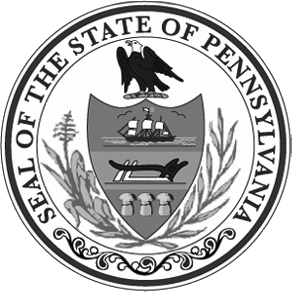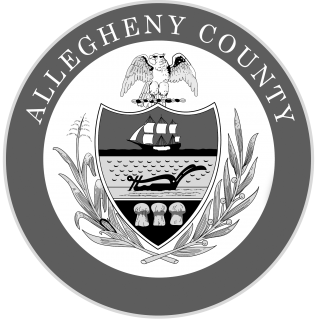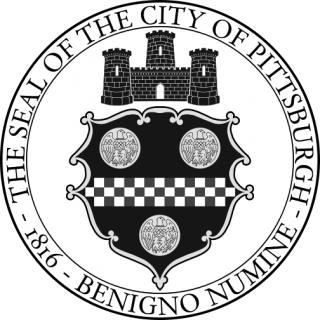|
The Lower Hill Development Team had a great turnout Wednesday, December 14th at the Energy Innovation Center for the M/WBE Block E Contractor Information Session. The first part of the evening attendees enjoyed dinner from Beyond Blessed Catering while hearing acknowledgements from our M/WBE consultant, e.Holdings, BPG's Vice President of Development, Bomani Howze and a handful of M/WBE Block G contractors, such as Mr. and Mrs. Morehead from Emerald Electric - M/WBE businesses that have been critical to advancing the new FNB Financial Center in the Lower Hill District Redevelopment.
The second half of the night featured the Block E information session and closed with a Q & A portion followed by contractor networking. BPGS Construction's, Project Engineer, Olivia Grunseich introduced Block E Construction Manager, Carl Walker Construction. Block E features a 910-space parking garage and 4,500 person music venue. For those unable to attend in person, a virtual option was available and the recording can be viewed by clicking the link below. To view the Block E presentation click here. Follow @lowerhillredev for all the latest updates on upcoming bidding and information sessions.
0 Comments
as featured December 12, 2022 BisNow, by Julia Troy, Studio B Editor
As commercial real estate continues to work toward becoming a more diverse and equitable industry, The Buccini/Pollin Group is delivering a new model for inclusion and community reinvestment in Pittsburgh’s historic Hill District. Across the nation, communities are still grappling with the history of redlining, a practice that began in the 1930s when the federal government and mortgage industry used color-coded maps to racially segregate American neighborhoods and schools. Federal highway projects, forced eviction via eminent domain and housing discrimination policies were deployed to displace African Americans from their homes and prevent them from purchasing real estate. Simultaneously, more than $221B was allocated to white-only suburbs and schools, while African American neighborhoods received “urban renewal” developments that spawned 3,000-plus projects in 200 cities and towns across the U.S. Pittsburgh’s Lower Hill District and the 12 public housing projects throughout the Greater Hill District were among the nation’s first of those major construction efforts to commence. While redlining was banned under the Fair Housing Act of 1968, many neighborhoods still feel the impact of the practice today and have lost out on investment opportunities as a result. In Pittsburgh, the Lower Hill Development Team is reinvesting in one such neighborhood, the Hill District, and creating a development that celebrates and invigorates the local community. “This is a transformational project with heavy social impact and reinvestment in neighborhoods that have been disinvested in deliberately, based on these redline guidelines,” The Buccini/Pollin Group Vice President of Development Bomani Howze said. The Lower Hill Redevelopment is a $1B, 28-acre mixed-use project that will feature a diverse mix of office, retail and multifamily development, entertainment venues, restaurants, pedestrian corridors and vibrant open spaces. In September 2021, the First National Bank Corp., the Pittsburgh Penguins, Clay Cove Capital and the Buccini/Pollin Group joined members of the Historic Hill District community to break ground on the FNB Financial Center, a 26-story mixed-use tower that will bring 475K SF of Class-A office space to the area, in addition to inviting plazas for community events and retail kiosks in support of small, local businesses. Bisnow sat down with Howze and Chris Buccini, co-president of the Buccini/Pollin Group, to learn more about the project and what it means to the company and to the region. Bisnow: Who is part of the development team for the project? Howze: Along with the Buccini/Pollin Group, we have a minority-owned equity investment partner, Clay Cove Capital. PAR, the real estate development arm of the Pittsburgh Penguins, helped complete the first round of approvals and infrastructure improvements for the site. First National Bank is not only an anchor tenant of ours, but also a partner committed to seeing this entire 28-acre development come to fruition while reinvesting in the Greater Hill District. The Lower Hill Development Team is also partnering with Hill District-based OLMEC Development Co. on a joint venture to create the development’s residential units. Bisnow: How is the development coming along? Howze: Back in September of 2021, we broke ground on the FNB Financial Center at the base of Washington Boulevard and Bedford Avenue, in the part of Lower Hill that is directly adjacent to Downtown Pittsburgh. Starting here on this restorative reconnection effort was deliberate to begin our goal of addressing some of the social ills that came from redlining. We feel there is no better place to have a catalytic project that is a beacon of reinvestment back into the neighborhood. We just finished the concrete podium for FNB’s new headquarters and have started to erect the steel and glass shell. We’re also getting ready to go before the city planning commission for approvals for the next $110M mixed-use project: a 910-space parking garage and a Live Nation music venue. Also slated for this 28-acre site are 1,200 units of residential development, another 800K SF of office space, a 400-room hotel and another 150K SF of entertainment and retail space that includes an incubator for small businesses. It’s a massive undertaking. Buccini: Nothing has been done like this in Pittsburgh for several generations. The office tower alone is the first multitenant office tower built in 40 years in the city of Pittsburgh. Nationwide, it is one of the first office towers to come out of the ground in the post-Covid environment. With that in mind, it will feature touchless, smart technology throughout the building, two forms of air purification and massive floor-to-ceiling windows that pull in tons of natural light and offer breathtaking views in every direction. The tower will have a dynamic amenity package that will support tenant return-to-work efforts. There will also be electric vehicle charging stations and bicycle storage in the garage of this trophy-class LEED Silver building when it opens in early 2024. Bisnow: How is this different from other large urban redevelopment projects? Howze: This is unprecedented. We have scoured the nation to see if there was a reinvestment plan to address the impact of redlining with a development project of this scale and we did not find one. We are in the middle of building a model, and at its core is a plan that involves a partnership with community stakeholders via the Community Collaboration and Implementation Plan. This plan has seven focus areas that guide reinvestment back into neighborhoods that have experienced this type of disinvestment. At closing last year, we were able to monetize the property tax abatement and direct $7.18M — a 50% share — of those proceeds to the community to allocate toward priority projects in adjacent neighborhoods. We've also awarded $45M in contracts to minority and women-owned businesses and have made over $24M in commitments to African American-owned businesses. We're very proud of this work and we want this to become an inspiration and a template for the nation. Bisnow: What drew you to Pittsburgh and the Lower Hill community, specifically? Buccini: Coming out of 2008, I said, “I don’t want to do business where I live, I want to do business where I want to be and where I can see the economy is growing.” We went to several cities and eventually met with the Pittsburgh Penguins, who control this 28-acre parcel. We weren’t setting out to do a big community reinvestment project, but we are ideally positioned to take it on because of our experience as a mixed-use developer. On top of that, when you consider the scale of reinvestment we've done in our hometown of Wilmington, Delaware, which has faced some similar challenges, this opportunity was incredibly compelling for us. Howze: I grew up two blocks from the Lower Hill site. My grandparents, father and his 11 siblings were forcibly removed from the area through the city’s use of eminent domain and scattered into the housing projects in the Middle Hill. Now, I’m directly involved as a developer, watching the FNB tower go up and reinvestment going back into the community. I am extremely proud of the trajectory that we’re on and how we are approaching development now. There's only one tower in our entire skyline that can be called a beacon of reinvestment into the surrounding neighborhoods, and that’s going to be the FNB Financial Center. By Tim Schooley – Reporter, Pittsburgh Business Times, Dec 13, 2022
Buccini/Pollin Group, partner to the Pittsburgh Penguins, introduced their proposal for the next project for the Lower Hill redevelopment by touting the financial stakes involved along with their comprehensive efforts to include minority- and women-owned businesses. "This next phase of the Lower Hill will build on the successes to date," said Chris Buccini, president of Buccini/Pollin Group, introducing the new presentation for the two companion projects to the Pittsburgh Planning Commission. He put the combined price tag for the two companion projects slated for the Block E section of the 28-acre Lower Hill site at $110 million. Buccini was also quick to introduce the project by detailing the minority- and woman-owned contracts entailed in the development so far as well the public funding the projects are helping to steer to other development needs in the Middle Hill and Upper Hill. That includes $7.1 million monetized from Local Economic Revitalization Tax Assistance funds already forwarded to broader community needs and Buccini projected that rest of the project could generate another $15 million to $20 million as well. The development team reported that more than $43 million in contracts have gone to women- and minority-owned business out of a total of more than $107 million for the projects involved so far. Based on a design by Lawrenceville-based architecture firm Desmone, it's a presentation that builds upon what the development team initially revealed in a Development Activities Meeting hosted by the Hill District Consensus Group in early October. It's a focal project to follow up the new 26-story FNB Financial Center office tower currently rising on the former arena site in the Lower Hill. Click here to read more |
Archives
May 2024
Categories
All
|
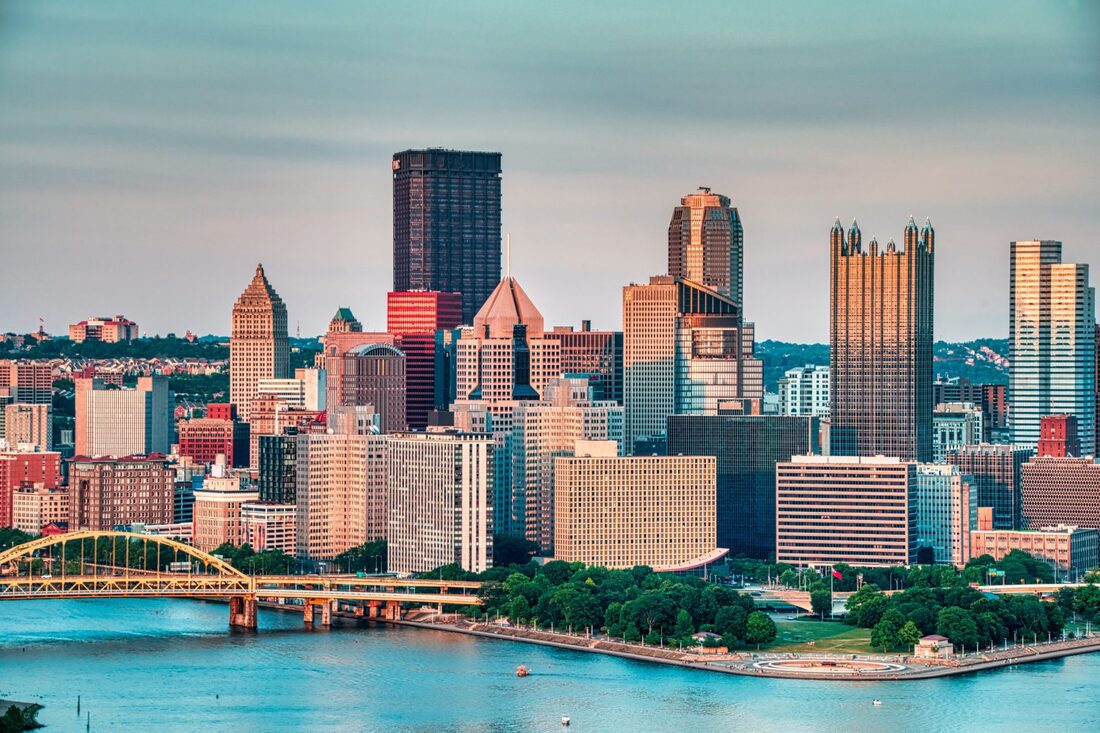
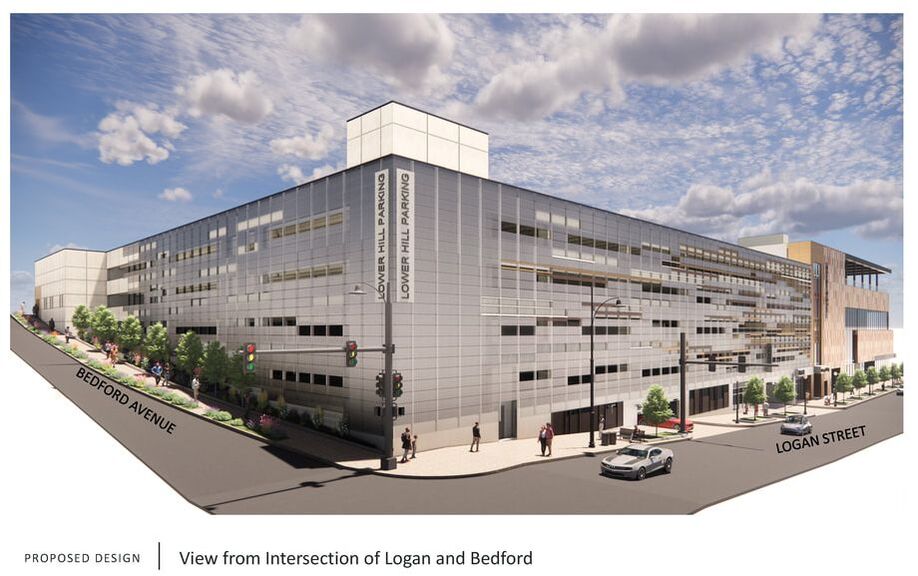
 RSS Feed
RSS Feed

